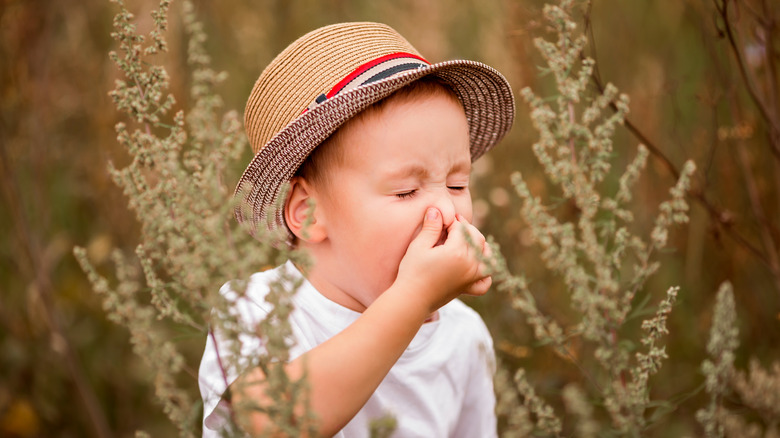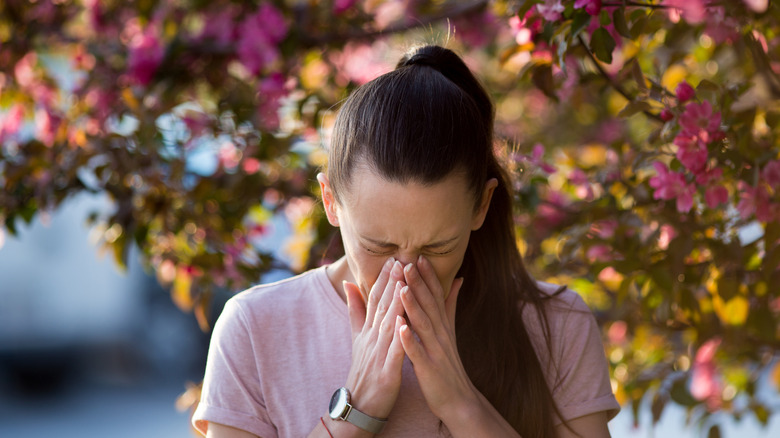The Real Reason Your Allergies Seem Worse This Year
If you feel like your allergies have been relentless this year, you are not alone. Many with seasonal allergies have noticed the effects of more pollen, and experts say it's due to the climate's warming trend.
In a recent study, researchers found that climate change could impact respiratory health, including asthma and allergies, through temperature-driven increases in airborne pollen (via Proceedings of the National Academy of Sciences in the United States of America).
The study focused on North America climate patterns, finding that pollen season increased by 20 days annually between 1990 and 2018. Pollen concentrations in North America increased 21 percent over the same time period (via Healthline). Experts added that it is not likely to improve until the climate stops warming.
The increase in the pollen is coupled with the potency, as it becomes increasingly more potent and triggers more intense allergy symptoms, according to the study. Longer and more intensive allergy seasons are expected to worsen respiratory health impacts over time.
How to lessen your allergy exposure
As plants adapt to experiencing the higher temperatures, new pollen species could be introduced regionally, Anna H. Nowak-Wegrzyn, M.D. Ph.D., a pediatric allergist at Hassenfeld Children's Hospital at NYU Langone in New York, told Healthline. This means an additional type of pollen could be introduced, as well as an increase in current pollen species.
If you have been one of the unlucky ones experiencing increased allergy symptoms, there are some steps you can take to lessen your exposure. Avoiding outdoor activities on windy days that have a higher pollen count, keeping your windows closed during allergy season, showering after being outdoors, and wearing a hat and sunglasses to keep the pollen out of your hair and eyes are a few seasonal allergy tips from the American College of Allergy, Asthma, and Immunology.
You can also get ahead of having a bad allergy season by discussing your options with your allergist, as there may be specific medication that works for your allergies.


